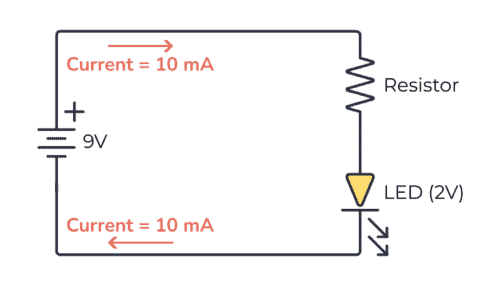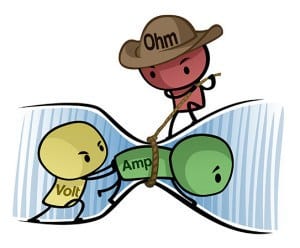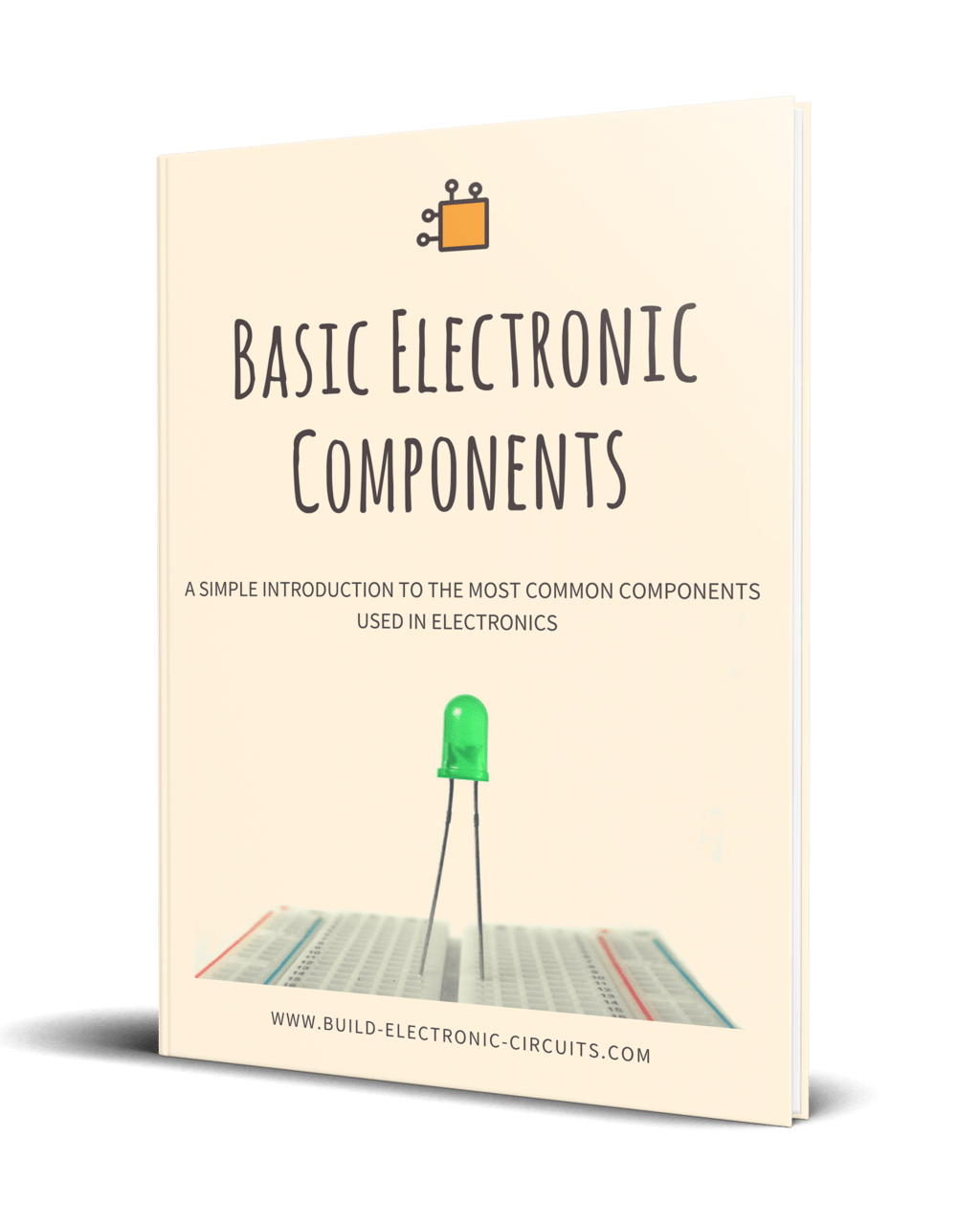Nooooo!
It is not.
It’s a common misunderstanding.
But let me make it clear:
The current after a resistor is the exact same as it was before the resistor.

“But doesn’t the resistor reduce the current?”
Yes, it does.
A circuit always has a bit of resistance, no matter if it has resistors or not in it.

10 Simple Steps to Learn Electronics
Electronics is easy when you know what to focus on and what to ignore. Learn what "the basics" really is and how to learn it fast.
Even wires have a little bit of resistance.
So let’s imagine a circuit – any kind of circuit – and say that its current is 1 ampere.
If you now add a resistor in series into this circuit – the current of the circuit will be smaller than it was.
So yes, the resistor does reduce the current.
(But the current flowing into the resistor is still the same as the current flowing out.)
This is one of the mindset shifts a beginner has to go through when learning electronics.
But after a few examples and a bit of practice, this becomes obvious. And it becomes much easier to understand what all the circuits actually do.
If you want to learn with me, I’m teaching electronics from scratch at Ohmify. Choose what you want to learn from a huge course library, or follow our learning roadmap to know exactly what to start with and what to do next.
Click here to learn more about Ohmify >>
More Resistors Tutorials

10 Simple Steps to Learn Electronics
Electronics is easy when you know what to focus on and what to ignore. Learn what "the basics" really is and how to learn it fast.


